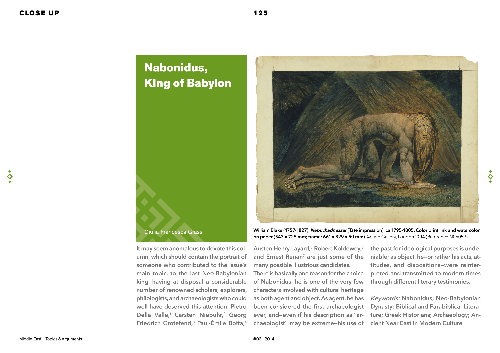Nabonidus, King of Babylon
It may seem anomalous to devote this column, which should contain the portrait of someone who contributed to the issue's main topic, to the last Neo-Babylonian king, having at disposal a considerable number of renowned scholars, explorers, philologists, and archaeologists who could well have de...
Gespeichert in:
| Veröffentlicht in: | Middle East - Topics & Arguments |
|---|---|
| 1. Verfasser: | |
| Format: | Artikel (Zeitschrift) |
| Sprache: | Englisch |
| Veröffentlicht: |
Philipps-Universität Marburg
2014
|
| Schlagworte: | |
| Online Zugang: | Online Zugang |
| Tags: |
Tag hinzufügen
Keine Tags, Fügen Sie den ersten Tag hinzu!
|
| Zusammenfassung: | It may seem anomalous to devote this column, which should contain the portrait of someone who contributed to the issue's main topic, to the last Neo-Babylonian king, having at disposal a considerable number of renowned scholars, explorers, philologists, and archaeologists who could well have deserved this attention: Pietro Della Valle, Carsten Niebuhr, Georg Friedrich Grotefend, Paul-Émile Botta, Austen Henry Layard, Robert Koldewey, and Ernest Renan are just some of the many possible illustrious candidates.There is basically one reason for the choice of Nabonidus: he is one of the very few characters involved with cultural heritage as both agent and object. As agent, he has been considered the first archaeologist ever, and—even if his description as "archaeologist" may be extreme—his use of the past for ideological purposes is undeniable; as object, he—or rather his acts, attitudes, and dispositions—were reinterpreted and transmitted to modern times through different literary testimonies. |
|---|---|
| DOI: | 10.17192/meta.2014.3.3146 |
 Publikationsserver
Publikationsserver